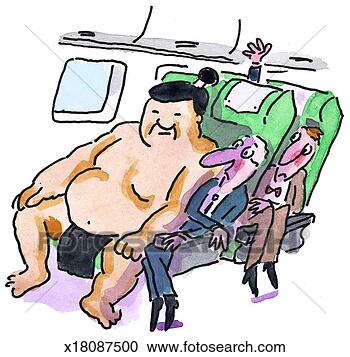 The tragic case of Emma Christoffersen, the 28-year-old bride-to-be who collapsed and died after a 20-hour flight from Australia to London, has graphically illustrated that.
The tragic case of Emma Christoffersen, the 28-year-old bride-to-be who collapsed and died after a 20-hour flight from Australia to London, has graphically illustrated that.It is precisely because air travel is so ferociously competitive that airlines are under such enormous commercial pressure to reduce costs wherever possible. This has led to cramped conditions and poor air quality which have important health implications for passengers.
In the U.S., for instance - where such statistics are carefully collated - there are around 14,000 medical emergencies a year and 350 in-flight deaths on the nine major U.S. airlines. This far outnumbers the annual toll of deaths caused by air accidents.
Deep Vein Thrombosis (DVT), the condition that killed the apparently otherwise healthy Emma Christoffersen, is one of the most common and disturbing medical problems associated with air travel.
Although DVT - where a blood clot forms in the veins of the legs and can work its way into the heart or lungs - is often seen in patients undergoing surgery, studies have shown that about 25pc of all people who develop it have been on a long-haul flight.
And the reasons air travellers develop this problem are all too apparent; in particular, the conditions that exist in the economy class of most aircraft where passengers are packed into their seats like sardines.
Barely able to move, they remain sitting in a vertical position throughout the duration of their flights, a rigid stance that prevents the normal circulation of the blood from the legs back to the heart and lungs.
The high pressure that exists in the veins forces fluid out of the circulation and into the soft tissue of the lower legs, which leads to swelling and can increase the blood's tendency to form clots.
It has been shown that during a simulated transatlantic flight, as much as four kilograms of fluid can shift from the circulation to the legs.
These difficulties are exacerbated by a host of factors such as dehydration. On a long-haul flight, a passenger should consume about a pint of water every three hours.
This is certainly not provided by the tiny meals and limited range of drinks served by most airlines. Indeed, tea, coffee and alcohol only worsen the problem by promoting dehydration, while the lack of water makes the blood stickier and more likely to clot.
Moreover, the practice of compelling passengers to sit for long periods with their meals on trays, long after they have finished eating, only worsens the constriction on the body.
Air quality in aircraft is almost as serious an issue as seating arrangements. Here again, we see the negative influence of commercial pressures.
We all need a regular intake of fresh air, and in a plane, air is drawn in by the engine and channelled into the interior. But many airlines try to conserve fuel by recycling air several times.
This problem of air quality is often at its worst when the take-off is delayed. Instead of returning to the departure lounge, the passengers remain on the stationary aircraft.
Because the engines are not running, there is little ventilation and the air becomes increasingly fetid.
The airlines claim that, once airborne, there is not a problem, because there are filters to purify the air as it recirculates. But there is little proof that filtering systems perform this job effectively.
So what can be done to improve things? I believe the Government needs to take a more active interest in the deteriorating state of air travel.
For example, we need regulations to ensure a minimum requirement of space for seating. We have such legislation for the transport of animals - so why not for humans?
And if an aircraft is subject to delay before take-off, there should be the immediate disembarkation of passengers if the delay is longer than half an hour, as happens in the U.S.
There should be legislation to restrict the re-circulation of air and to lay down minimum standards on aircraft filtration systems, in addition to stronger guidelines on the use of alcohol.
Last but not least, passengers must be made more aware of the health problems associated with flying, particularly the risk of DVT and dehydration.
Air travel has been a wonderful boon for mankind, extending our horizons. But we are living with the consequences of trying to pursue the dream of global freedom too aggressively.
Mailonline

No comments :
Post a Comment